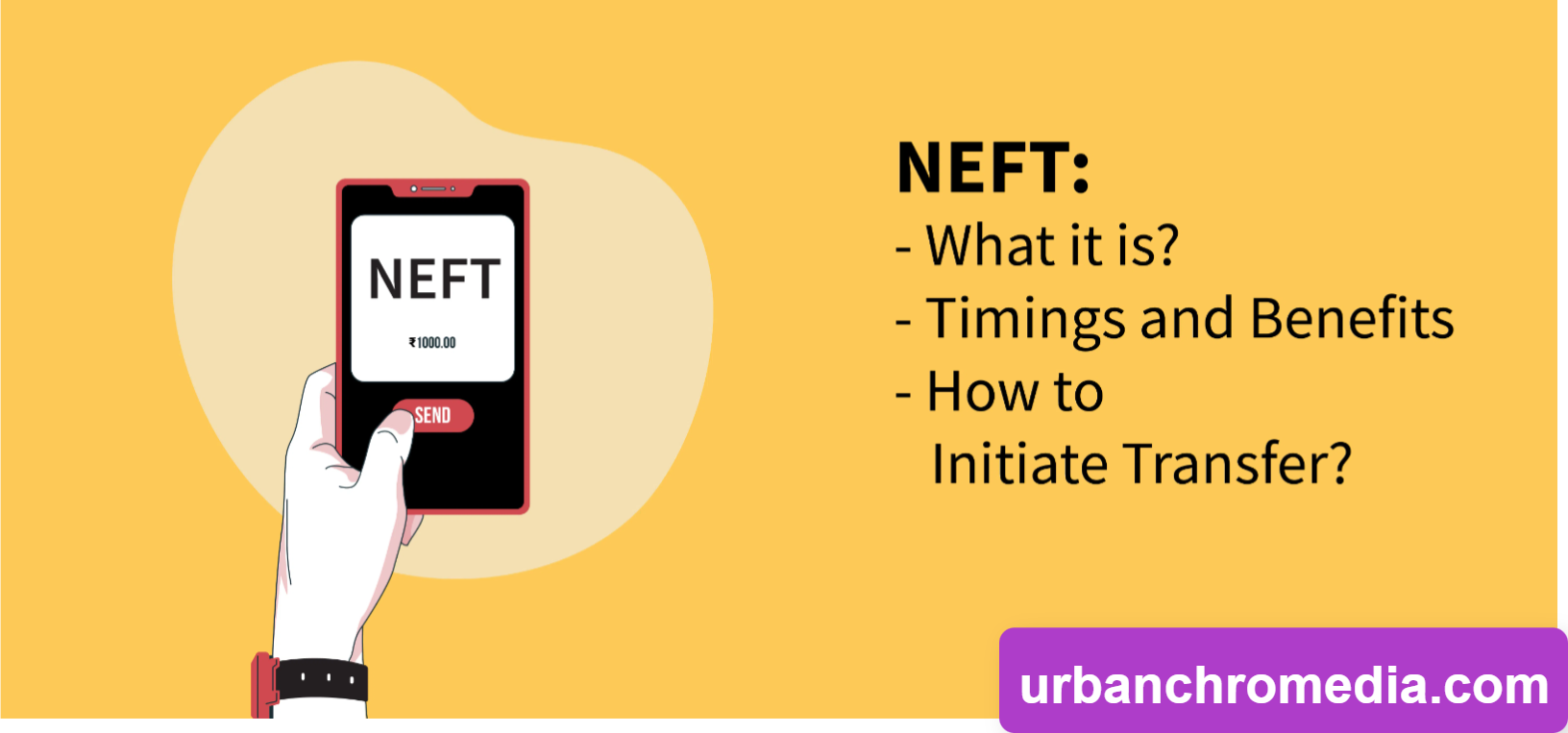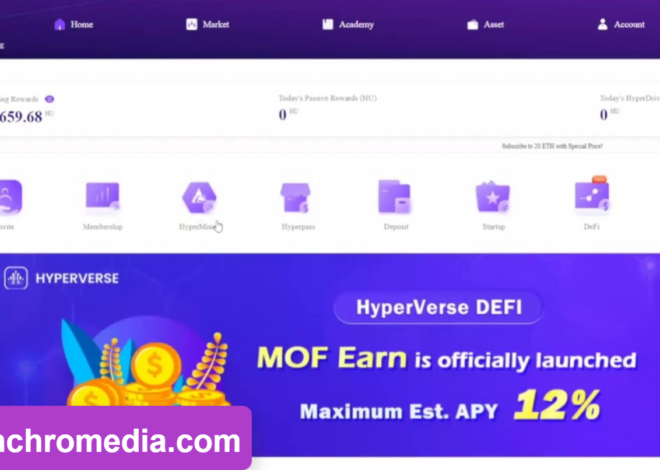
Demystifying NEFT in Banking: Full Form, Features, Charges, Timings, and Advantages
NEFT in Banking: Banking has seamlessly integrated into our daily routines, and with the advent of online banking, many tasks have become effortlessly manageable. Gone are the days of waiting in long queues at the bank for money transfers, or dealing with the hassle of filling out cheques, withdrawal forms, and challans. In the realm of online money transfer, NEFT has emerged as a widely utilized process. Let’s delve into the intricacies of NEFT to gain a better understanding of this convenient and efficient method.
NEFT Full Form
The acronym NEFT stands for National Electronic Funds Transfer, serving as a vital electronic payment mechanism in India. Managed by the Reserve Bank of India (RBI), NEFT facilitates the seamless transfer of money between bank accounts. Notably, transactions are settled in batches on a deferred net settlement basis, distinguishing it from instantaneous one-at-a-time settlements. NEFT transfers are accessible to both individuals and businesses, initiating through online or mobile banking platforms, or by visiting a physical bank location.
Understanding NEFT
National Electronic Funds Transfer (NEFT) stands as an online funds transfer mechanism introduced by the Reserve Bank of India (RBI). This system ensures swift money transfers between banks across India. For customers to initiate fund transfers to another party, it is essential that the involved bank branch is NEFT-enabled.
Understanding the Allowed Timings for NEFT Transactions
In the past, NEFT clearances adhered to specific time slots:
Monday-Friday: 8 a.m. to 7 p.m.
Saturday: 8 a.m. to 12 p.m.
However, in December 2019, the Reserve Bank of India (RBI) ushered in a new era with the introduction of the revamped NEFT payment system—now active 24×7, 365 days a year. This innovative approach aims to boost digital transactions and foster the global integration of Indian financial markets.
Under the new system, you have the flexibility to place an NEFT request at any time. These requests are systematically queued and subsequently cleared once every hour, ensuring seamless transactions around the clock.
NEFT Transfer Limits: What You Need to Know
Initiate an NEFT fund transfer with the flexibility to start from as low as Re.1. Remarkably, the Reserve Bank of India (RBI) has not imposed any maximum limit on NEFT transactions. In terms of cash transactions, you can transfer up to Rs.50,000 per transaction, with no constraints on the total transfer amount. While the RBI maintains an open-ended approach, some banks, like HDFC Bank, have instituted their own upper limits. For instance, HDFC Bank has set the maximum limit at Rs.25 lakh per day per customer ID for online NEFT transactions.
Navigating NEFT Costs: Are Charges Involved?
Decoding NEFT Transaction Charges
- Inward Transactions: Beneficiary Account Credit – Free of Cost
- Outward Transactions: Remitter Transaction Charges
- Up to ₹10,000: ₹2.5 + GST
- ₹10,000-1 lakh: ₹5 + GST
- ₹1 lakh-2 lakh: ₹15 + GST
- Above ₹2 lakh: ₹25 + GST
Understanding the intricacies of NEFT transaction charges for both inward and outward transactions, ensuring transparency in financial considerations.
Initiating NEFT Fund Transfer : A Step-by-Step Guide
Step 1: Begin by accessing the internet banking portal of your respective bank.
Step 2: Once on the homepage, navigate to the ‘Fund Transfer’ feature.
Step 3: Opt for the ‘NEFT’ alternative within the funds transfer section.
Step 4: Handpick the intended recipient from your registered list for the money transfer.
Step 5: For those looking to include a new beneficiary, simply click on the ‘Add Beneficiary’ option displayed. Input necessary details like account number, name, IFSC, bank branch, and account type.
Step 6: Scrutinize the provided information and proceed with the confirmation.
Step 7: Validate the addition of the beneficiary by entering the 4-digit OTP sent to your registered mobile number.
Step 8: Post-confirmation, patiently await the activation of the newly added beneficiary within the specified timeframe.
Step 9: To initiate the transaction, select the beneficiary, designate the source bank account, specify the transfer amount, and finalize the process by clicking the ‘Confirm’ button.
Unveiling the Advantages: Exploring the Benefits of NEFT
Utilizing NEFT for financial transactions proves to be a cost-effective choice. NEFT operates on a highly secure platform, ensuring the safety of your transactions. Eliminate the necessity of employing a cheque or demand draft (DD) for money transfers. Say goodbye to the need for physical visits to the bank when transferring funds. Opt for online initiation of fund transfers to streamline the process. Experience a swift and convenient completion of transfers, enhancing efficiency.
Conclusion
National Electronic Funds Transfer (NEFT), with its full form as National Electronic Funds Transfer, has revolutionized the landscape of money transfers in India. This secure, convenient, and cost-effective method of fund transfer is widely embraced by banks across the nation. Despite its limitations, such as the absence of real-time processing and time constraints, NEFT continues to be a favored option for domestic transactions. It stands as a reliable and efficient mode of payment, contributing to the ease of financial transactions in the country.
NEFT FAQs
Can NEFT transfers be initiated on Sundays?
Certainly. You have the option to initiate a fund transfer on a Sunday. However, it’s important to note that the credited amount will reflect in the recipient’s account only on the subsequent working day.
Are there additional transactions that can be conducted through NEFT?
Beyond transferring funds to a recipient, NEFT also allows you to settle a credit card bill.
Is it possible to use NEFT for transferring funds to a bank account located outside India?
No, NEFT is specifically designed for domestic fund transfers within India. It does not support international money transfers.
How long does it take for funds transferred via NEFT to be credited to the recipient?
The funds transferred through NEFT may take a maximum of two working days to be credited to the beneficiary.







